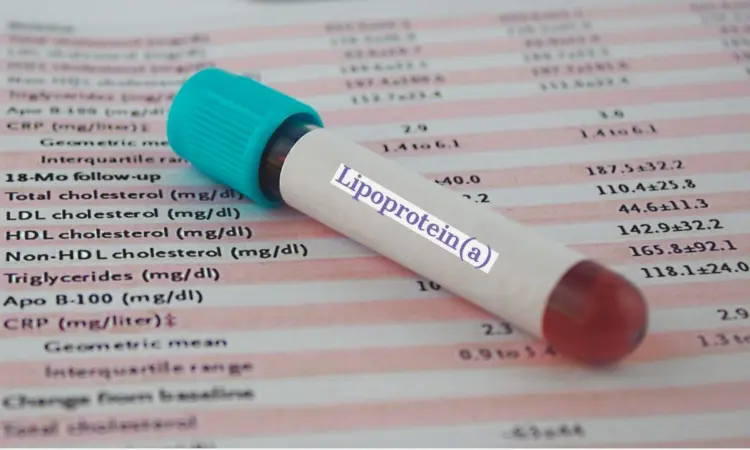- Home
- Medical news & Guidelines
- Anesthesiology
- Cardiology and CTVS
- Critical Care
- Dentistry
- Dermatology
- Diabetes and Endocrinology
- ENT
- Gastroenterology
- Medicine
- Nephrology
- Neurology
- Obstretics-Gynaecology
- Oncology
- Ophthalmology
- Orthopaedics
- Pediatrics-Neonatology
- Psychiatry
- Pulmonology
- Radiology
- Surgery
- Urology
- Laboratory Medicine
- Diet
- Nursing
- Paramedical
- Physiotherapy
- Health news
- Fact Check
- Bone Health Fact Check
- Brain Health Fact Check
- Cancer Related Fact Check
- Child Care Fact Check
- Dental and oral health fact check
- Diabetes and metabolic health fact check
- Diet and Nutrition Fact Check
- Eye and ENT Care Fact Check
- Fitness fact check
- Gut health fact check
- Heart health fact check
- Kidney health fact check
- Medical education fact check
- Men's health fact check
- Respiratory fact check
- Skin and hair care fact check
- Vaccine and Immunization fact check
- Women's health fact check
- AYUSH
- State News
- Andaman and Nicobar Islands
- Andhra Pradesh
- Arunachal Pradesh
- Assam
- Bihar
- Chandigarh
- Chattisgarh
- Dadra and Nagar Haveli
- Daman and Diu
- Delhi
- Goa
- Gujarat
- Haryana
- Himachal Pradesh
- Jammu & Kashmir
- Jharkhand
- Karnataka
- Kerala
- Ladakh
- Lakshadweep
- Madhya Pradesh
- Maharashtra
- Manipur
- Meghalaya
- Mizoram
- Nagaland
- Odisha
- Puducherry
- Punjab
- Rajasthan
- Sikkim
- Tamil Nadu
- Telangana
- Tripura
- Uttar Pradesh
- Uttrakhand
- West Bengal
- Medical Education
- Industry
Zerlasiran, a promising intervention targeting lipoprotein(a), shows positive results in clinical trial

USA: In the realm of cardiovascular health, the quest to combat elevated levels of lipoprotein(a) [Lp(a)], a significant risk factor for cardiovascular disease (CVD), has long been a challenge. However, a recent clinical trial investigating the efficacy of Zerlasiran, a novel short-interfering RNA (siRNA) therapy targeting Lp(a), has yielded promising results, offering hope for millions at risk of CVD.
The trial enrolling 32 healthy participants and 36 patients with cardiovascular disease and lipoprotein(a) concentrations 150 nmol/L or greater, revealed that zerlasiran was well tolerated and produced sustained reductions in lipoprotein(a) concentrations, supporting further development. No serious adverse events occurred.
"The median change from baseline in lipoprotein(a) concentration 365 days after single doses for placebo, 300 mg, and 600 mg were 14%, −30%, and −29%. The maximal median change from baseline following two doses of placebo, 200 mg, 300 mg, and 450 mg were 7%, −97%, −98%, and −99%," the researchers reported in the Journal of the American Medical Association (JAMA)
Lipoprotein(a) is a causal risk factor for calcific aortic stenosis and atherosclerotic cardiovascular disease (ASCVD), with no pharmacological treatments approved by regulatory authorities. Considering this, Steven E. Nissen, Cleveland Clinic Center for Clinical Research, Cleveland, Ohio, and colleagues aimed to assess the tolerability and safety of zerlasiran and its effects on serum lipoprotein(a) concentrations.
For this purpose, the researchers conducted a single- and multiple-dose study in healthy participants and patients with stable ASCVD, respectively, with Lp (a) serum concentrations greater than 150 nmol/L, at seven research sites in the Netherlands, the US, Australia, and the UK between 2020 and 2023.
Participants were randomized to receive (1) a single subcutaneous dose of placebo (n = 8), zerlasiran 300 mg (n = 6) or 600 mg (n = 6); or (2) two doses of placebo (n = 9), zerlasiran 200 mg (n = 9) at intervals of 4 weeks or 300 mg (n = 9) or 450 mg (n = 9) at an 8-week interval.
The study's primary outcome was tolerability and safety. Secondary outcomes included serum zerlasiran levels and effects on lipoprotein(a) serum concentrations.
The researchers reported the following findings:
- Among 37 patients in the multiple-dose group (mean age, 56 years; 42% women), 36 completed the trial. Among 14 participants with extended follow-up after single doses, 13 completed the trial.
- There were no serious adverse events.
- Median baseline lipoprotein(a) concentrations in the multiple-dose group were 288 nmol/L.
- Median changes in lipoprotein(a) concentration at 365 days after single doses were 14% for the placebo group, −30% for the 300 mg of zerlasiran group, and −29% for the 600-mg dose group.
- After two doses, maximal median changes in lipoprotein(a) concentration were 19 nmol/L for the placebo group, −258 nmol/L for the 200 mg of zerlasiran group, −310 nmol/L for the 300-mg dose group, and −242 nmol/L for the 450-mg dose group, with maximal median percent change of 7%, −97%, −98%, and −99%, respectively, attenuating to 0.3%, −60%, −90%, and −89% 201 days after administration.
The findings showed that zerlasiran was well tolerated and reduced lipoprotein(a) concentrations with infrequent administration.
"These findings support further development of zerlasiran in phase 2 and 3 clinical trials," the researchers wrote.
Reference:
Nissen SE, Wolski K, Watts GF, et al. Single Ascending and Multiple-Dose Trial of Zerlasiran, a Short Interfering RNA Targeting Lipoprotein(a): A Randomized Clinical Trial. JAMA. 2024;331(18):1534–1543. doi:10.1001/jama.2024.4504
Dr Kamal Kant Kohli-MBBS, DTCD- a chest specialist with more than 30 years of practice and a flair for writing clinical articles, Dr Kamal Kant Kohli joined Medical Dialogues as a Chief Editor of Medical News. Besides writing articles, as an editor, he proofreads and verifies all the medical content published on Medical Dialogues including those coming from journals, studies,medical conferences,guidelines etc. Email: drkohli@medicaldialogues.in. Contact no. 011-43720751


